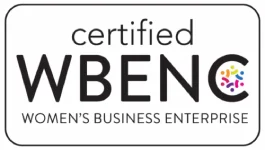The DoL Fights Employers Failing to Remit Contributions
The Labor Department’s Employee Benefits Security Administration (EBSA) has a long history of protecting the contributions employees make to their 401 (k), health care, and any other contributory plans by investigating employers who delay forwarding these contributions to the appropriate funding vehicle or who convert the contributions to other non-plan uses. The Contributory Plans Criminal Project, initiated in 2010, is the first solely criminal national enforcement initiative. The Labor Department’s focus on protecting employee contributions is multi-faceted:
• Conducting civil and criminal investigations into 401(k) misuse
• Issuing a regulation to shorten the time for transmission of contributions to the plan
• Launching an education campaign to inform retirement plan participants about their rights and ways to protect their pensions
By the end of Fiscal Year 2011 there were 1,700 civil cases closed, 1,429 with corrected violations resulting in $58,773,213 in monetary results.
Recently, one such lawsuit was filed against Towson Rehabilitation Center LLC and CEO Howard Neels. This suit is the result of an investigation by the EBSA which found that, since January 2006, the defendants failed to comply in three areas: failing to remit employee contributions to the plan, remitting certain employee contributions late without interest, and failing to segregate the plan’s assets from the general assets of the company. The EBSA is intent on holding fiduciaries accountable when they fail to act in the best interest of the plan participants. This suit seeks to permanently bar the defendants from serving in a fiduciary capacity as well as to restore all financial losses to the plan.
Voluntary Fiduciary Correction Program
In an effort to encourage employers to comply with ERISA, the EBSA adopted the Voluntary Fiduciary Correction Program (VFCP) which allows employers to self-indentify and correct certain violations by plan officials if they meet certain criteria. On Schedule H of Form 5500 under the Compliance Questions, there is a question asking if there was a failure to transmit to the plan any participant contributions within a specified time period. It is here that employers can “self-identify”. Employers receive “no action” letters through this process in which most of the applications involve delinquent employee contributions. The success of the VFCP program frees EBSA investigators to pursue undiscovered violations while self-identified violations are corrected.
Participant Contribution Regulation
The Department’s participant contribution regulation requires employers of all sizes to transmit employee contributions to pension plans no later than the 15th business day of the month immediately following the month in which the contribution is either withheld or received by the employer. An amendment was issued to create a safe harbor rule under which participant contributions to plans with fewer than 100 participants will be deemed compliant with the law if those amounts are deposited with small plans within seven business days of withholding or receipt.
Categories
Archive








